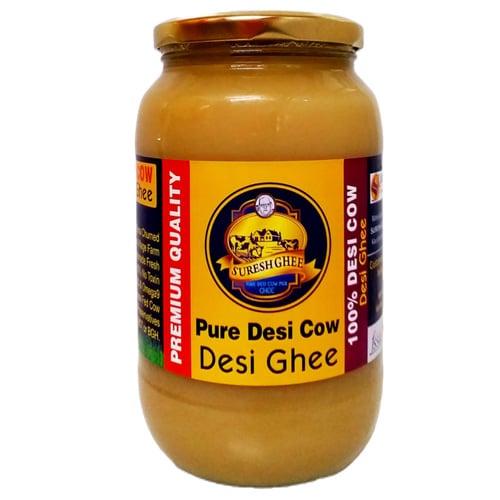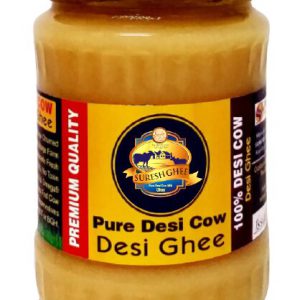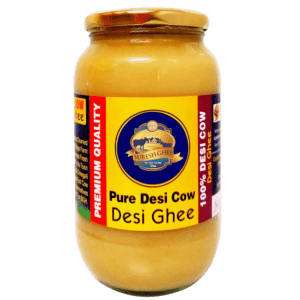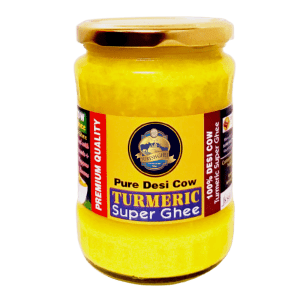Blood pressure is the exertion of blood hit abutting blood vessel walls. The heart pumps blood into the arteries (blood vessels) which is a carrier of blood throughout the body. High blood pressure, also known to be hypertension, means the force in your arteries is above the normal range.
In most cases, no one knows what is the reason behind high blood pressure. What you consume in your daily routine diet can affect your blood pressure. Ghee from Suresh farm is safe to eat for people with cholesterol and blood pressure health issues.
Rujuta, a nutritionist from Mumbai says that ghee is useful in regulating cholesterol by enhancing lipids and offering a boost to the metabolism.
Read More: Build immunity with Desi Ghee.
Foods that help to control your blood pressure
Certain intake of foods can help in reducing high blood pressure. We look at which diets work and how to infuse them into a nutritional diet.
1. Bananas
Bananas include plenty of potassium, a mineral that plays vital importance in maintaining hypertension. One medium-sized banana has about 422 milligrams of potassium. According to the American heart association, potassium reduces the effects of sodium and relieves tension against the walls of the blood vessels.
Adults should aim to eat 4,700 milligrams (mg) of potassium daily. Other potassium-rich foods involve:
- Avocado
- cantaloupe and honeydew melon
- halibut
- mushrooms
- sweet potatoes
- tomatoes
- tuna
- beans
Read More: Cow Ghee & Its Medicinal Uses in Ayurveda
2. Beets
Drinking beet juice can help in controlling blood pressure in a short and long duration of time. In 2015, researchers reported that consuming red beet juice causes blood pressure in people with hypertension to be about 1 cup of the juice every day for 4 weeks. You will notice some positive results within 24 hours.
Those who drank 1 cup of beet juice every day, had a drop in blood pressure of around 8/4 millimeters of mercury. For many, this change brought their blood pressure to the normal range. Many nutritionists suggested that beet’s high levels of inorganic nitrate lead to a reduction in blood pressure.
3. Dark chocolate
This sweet treat of dark chocolate may lower blood pressure. A review of 15 trials suggests that cocoa-rich chocolate lowers blood pressure in people with hypertension or prehypertension. Select high-quality chocolate that includes a minimum of 70 per cent cocoa, and eat a single square, or a piece of about 1 ounce, each day. A range of dark chocolate is available in various flavours.
4. Kiwis
Daily eating of kiwi can control blood pressure in people with mildly increased levels, according to the results of a study. The researchers observed the effects of apples and kiwis on people helpful in controlling high blood pressure.
They realized that eating three kiwis per day for 8 weeks resulted in a reduction in both systolic and diastolic blood pressure, eating one apple a day for the same period in comparison with kiwi. The experts came to know that the bioactive ingredient in kiwis leads to the reduction.
Kiwis are also a good source of vitamin C, which is responsible for improving blood pressure records in people who infuse around 500 mg of the vitamin daily for about 8 weeks. Kiwis are also easy to serve for lunches or smoothies.
Read More: Overdosing, Ghee possible side effects?
5. Watermelon
Watermelon includes an amino acid called citrulline, which may be used to maintain high blood pressure. Citrulline is useful to the body for producing nitric oxide, a gas that alleviates blood vessels and inspires flexibility in arteries.
These consequences regulate the flow of blood, which can reduce high blood pressure. In one study, people with obesity and prehypertension or mild hypertension who intake watermelon extract results controlled blood pressure in the ankles and brachial arteries.
The mice who inhaled the medicine also had 50 per cent of low-density lipoprotein cholesterol, which many referred to as bad cholesterol, and they showed 30 per cent less weight gain than the control animals.
To enhance watermelon consumption, mix the fruit into salads and smoothies, or you can have it in a chilled watermelon soup.
6. Berries
Blueberries and strawberries are included with antioxidant properties known as anthocyanins, a kind of flavonoid. The highest consumption of anthocyanins primarily from blueberries and strawberries had an 8 per cent depletion in the prospect of high blood pressure, compared to those with a low anthocyanin consumption. Eat and enjoy berries as a sweet treat after food or meal, or infuse them into smoothies and oatmeal.
7. Ghee:

nutritionist from Mumbai says that ghee is useful in stimulating elevated blood pressure levels by enhancing lipids and giving a build to the metabolism. The amount of ghee injected into your food also matters a lot for the best results to boost immunity. Ideally, you should add as much organic desi ghee to food until it improves the taste and quality of food. Except that, everyone should get around 3 to 6 tsp of ghee every day, recommends Rujuta.
Read More: Benefits of desi cow ghee
Conclusion:
Ghee is known as an Indian superfood. Not only is it good to taste, but it also delivers various health benefits. If you avoid ghee or completely leave on having it, at least having it once in your lifetime then you are away from its immense benefits.
Celebrity nutritionist Rujuta Diwekar is here to diminish all such myths related to ghee. In her recent post on social media, she explains ghee and why it is essential for your health. We discussed the various importance of why Desi ghee should be an aspect of your diet.
This is true for people with high blood pressure as well! Try to grab the bottle of ghee that is from desi cow milk. The better option is always to choose ghee made by the Vedic method or obtained from organic firms. If you want to add it to your meal then visit our website for online https://sureshfoods.com.
FAQ
For optimum benefits, make sure to add 1 teaspoon of ghee to each of your three main meals: breakfast, lunch, and dinner. This moderate consumption of ghee can be specifically advantageous for individuals combating with conditions that are PCOS, heart disease, high blood pressure, constipation, weak joints, and inflammatory bowel syndrome (IBS).
Irrespective of being considered as a high-fat food, ghee is classified as cholesterol-friendly. Cow’s ghee consists of Conjugated Linoleic Acid (CLA), an essential fat that supports the body to fight bad cholesterol. The connection between ghee and cholesterol should not be regarded as entirely negatively, provided one is cautious of the accurate quantity and consumption procedure. The consistency of butyrate in ghee also makes it extraordinarily gut-friendly. Additionally, ghee is a rich source of fat-soluble vitamins such as A, D, E, and K, creating it to be a versatile ingredient in your kitchen.
If stress about ghee adding to a high blood pressure haunts you, the answer is no. Minimal intake of ghee has been demonstrated to be safe for individuals with mild cholesterol and blood pressure concerns. According to the suggestions of modern dieticians and dairy experts, consuming a moderate quantity of pure grass-fed ghee into your routine diet can help regulate cholesterol and deliver a healthy boost to metabolism.
Yes, individuals with heart disease can securely incorporate ghee in their diet. Ghee is well-renowned to support in the management of heart diseases, providing benefits to heart patients.
However, it is imperative to:
– Opt pure and high-quality ghee.
– Incorporate ghee in moderation, as excessive consumption may offset its benefits.
– Limit carbohydrate consumption.
– Seek suggestions from a doctor before intake of ghee into your regular diet, especially if you are going through a heart condition.








 WhatsApp us
WhatsApp us
Naveen m...